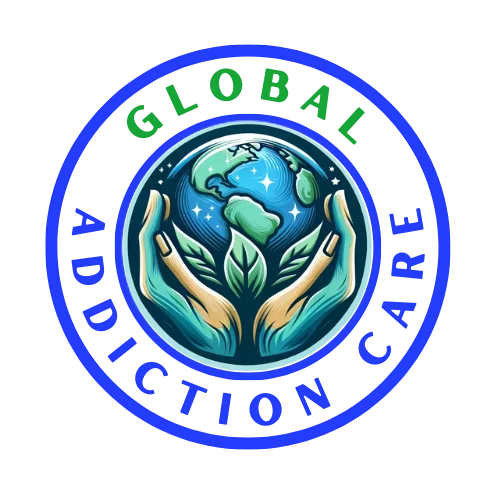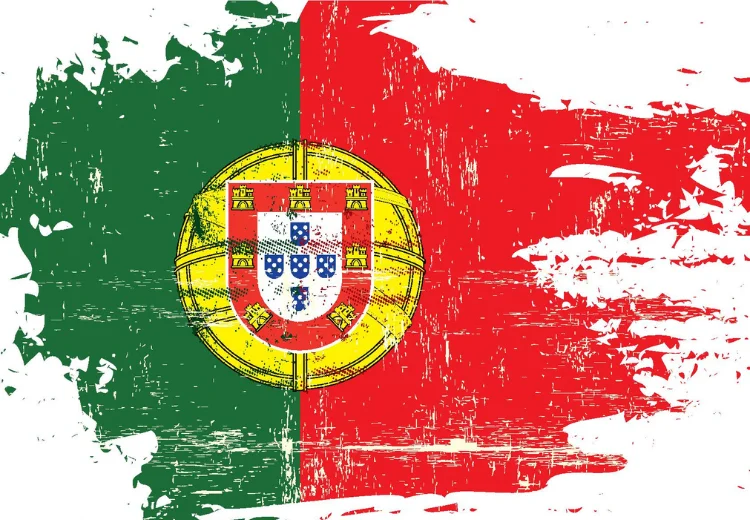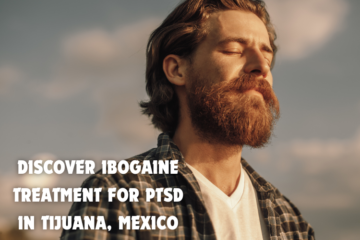In the early 2000s, Portugal embarked on a groundbreaking journey, fundamentally altering its approach to drug use and possession. This small, picturesque nation, known for its rich history and stunning coastlines, made a bold decision to decriminalize all drugs, from cannabis to cocaine, in a radical departure from the conventional war on drugs. The policy shift wasn’t just a legal amendment; it was a cultural leap.
Instead of treating drug users as criminals, Portugal chose to see them as individuals needing support and medical attention. This paradigm shift was rooted in compassion and pragmatism, aiming to reduce the stigma associated with drug use and focus on harm reduction. As the world watched with bated breath, Portugal became a living laboratory for a policy experiment that promised to redefine the global conversation on drug control and addiction.
Nearly two decades later, the ripples of this bold move are evident not only in the realm of public health but also in the unexpected sphere of tourism. Portugal’s unique stance on drug decriminalization has intrigued the global community, turning it into a destination for those curious about its innovative approach. The policy has not only helped in reshaping the narrative around addiction treatment, offering new models of care and rehabilitation, but it has also painted Portugal as a progressive, open-minded destination.
Table of Contents
History of Drug Decriminalization in Portugal
You know, Portugal’s journey to decriminalize drugs is quite a tale. Back in the 1990s, Portugal was grappling with a serious drug crisis. We’re talking one of the worst in Europe, with rampant drug use and HIV/AIDS rates soaring among drug users. It was a real mess. So, in 2001, they decided to try something totally out of the box. Instead of locking up their drug users, Portugal took a leap of faith and decriminalized all drugs.
Yes, all of them – from marijuana to heroin. The idea was simple yet revolutionary: treat drug addiction as a public health issue, not a criminal one. They shifted their focus from punishment to treatment and prevention. It was a bold move that raised quite a few eyebrows around the world.
And guess what? This shift in strategy started showing positive results sooner than many expected. Instead of the feared increase in drug use, they actually saw a decline, especially among the younger folks. HIV infections and drug-related deaths began to drop, and more people started seeking treatment voluntarily.
It was like they flipped a switch and changed the entire narrative around drug use and addiction. Portugal’s approach soon caught the eye of other countries, making it a case study for progressive drug policy. It’s fascinating how a country known for its explorers and navigators centuries ago became a pioneer in uncharted policy waters, don’t you think?
The Impact on Addiction Treatment
Here’s an overview of the impact Portugal’s drug decriminalization policy has had on addiction treatment:
- Increased Treatment Uptake: Decriminalization led to more people seeking and receiving treatment voluntarily, as the stigma associated with drug use diminished.
- Shift in Treatment Focus: The focus shifted from punitive measures to therapeutic and rehabilitative approaches, emphasizing health and well-being over legal consequences.
- Reduction in Drug-Related Harm: There was a significant decrease in drug-related harm, including reductions in overdoses, HIV infections, and drug-related deaths.
- Expansion of Harm Reduction Services: Services like needle exchange programs and methadone clinics expanded, further reducing the risk of infection and encouraging safer drug use practices.
- Enhanced Public Health Resources: More resources were allocated to public health services, improving access and quality of addiction treatment.
- Integration of Services: Addiction treatment became more integrated with other health services, offering a more holistic approach to individuals’ health needs.
- Increased Research and Monitoring: The policy change spurred more research into addiction and monitoring of drug use patterns, leading to better-informed strategies and interventions.
- Broader Social Support Systems: There was an increase in social support for drug users, including employment and housing assistance, contributing to more comprehensive recovery programs.
- Cultural Shift in Perception: A cultural shift occurred in the perception of drug addiction, now viewed more as a health issue than a criminal problem, reducing stigma and discrimination.
- International Influence: Portugal’s success has influenced other countries to reconsider their drug policies and adopt more health-focused approaches to addiction treatment.
Redefining Tourism in Portugal
Portugal’s drug decriminalization policy has had a surprising and profound effect on its tourism industry, redefining it in several key ways:
- Emergence of Health and Wellness Tourism: The country has become a hub for health and wellness tourism, with visitors interested in understanding Portugal’s progressive approach to drug policy and addiction treatment.
- Educational and Research Tourism: Academics, health professionals, and policy makers from around the world are increasingly visiting Portugal to study its decriminalization model and its effects on public health and society.
- Cultural Shift in Tourism Marketing: The decriminalization policy has contributed to Portugal’s image as a progressive, open-minded destination, attracting a diverse range of tourists.
- Growth in Alternative Tourism: There’s been a rise in alternative tourism sectors, including visits to rehabilitation centers and participation in community-based drug recovery programs.
- Increased International Interest: The unique approach to drug policy has sparked international media interest, drawing tourists curious about the impacts of these policies on Portuguese society and culture.
- Boost in Overall Tourism: The policy, coupled with Portugal’s natural beauty, rich history, and culture, has contributed to a general increase in tourism.
- Impact on Local Economies: The growth in tourism has positively impacted local economies, with increased demand for accommodation, food services, and cultural activities.
- Sustainable and Responsible Tourism: Portugal’s approach has also fostered a more sustainable and responsible form of tourism, aligning with global trends towards ethical and educational travel experiences.
Challenges and Controversies
Portugal’s drug decriminalization policy, while innovative and largely successful, hasn’t been without its challenges and controversies:
| Challenges | Controversies |
|---|---|
| Persistent Drug Use: Despite the policy’s success, there are still challenges in completely eradicating drug use and dealing with the most severe cases of addiction. | International Criticism: Some countries and international bodies have criticized Portugal’s approach, arguing that it could potentially encourage drug use. |
| Funding and Resource Allocation: Ensuring consistent and adequate funding for treatment programs and harm reduction services remains a challenge. | Misinterpretation of the Policy: There’s a misconception that decriminalization equates to legalization, leading to misunderstandings about the policy’s intent and outcomes. |
| Integration of Services: Fully integrating addiction treatment services with broader healthcare and social services can be complex and resource-intensive. | Domestic Opposition: Some segments of the Portuguese population remain skeptical or opposed to decriminalization, preferring more traditional law enforcement approaches. |
| Addressing New Drug Trends: Adapting to new trends in drug use, such as the rise of synthetic drugs, requires ongoing adjustments to treatment and prevention strategies. | Risk of Drug Tourism: Concerns exist that the decriminalization might attract individuals interested solely in drug use, potentially leading to “drug tourism.” |
| Monitoring and Evaluation: Continuously monitoring the long-term impacts of the policy and evaluating its effectiveness can be challenging, particularly in changing social and economic contexts. | Balancing Public Health and Public Safety: Balancing the needs of public health with public safety concerns, especially in urban areas, remains a contentious issue. |
Comparative Analysis with Other Countries
When comparing Portugal’s drug decriminalization policy with approaches in other countries, several key differences and similarities emerge:
- Approach to Drug Decriminalization:
- Portugal: Decriminalized all drugs, focusing on treatment and harm reduction.
- Other Countries: Varying approaches, with some countries like the Netherlands tolerating certain drugs (e.g., cannabis) but not decriminalizing all drugs. Others, like the United States, largely maintain a criminalization approach, though there are movements towards decriminalization in certain states.
- Public Health vs. Criminal Justice:
- Portugal: Emphasizes public health approach, treating drug use as a medical issue rather than a criminal one.
- Other Countries: Many still prioritize a criminal justice approach, with imprisonment and fines for drug possession and use. However, countries like Canada and certain states in the USA are shifting towards a health-based approach, especially regarding cannabis.
- Harm Reduction Services:
- Portugal: Extensive harm reduction services like needle exchange programs and methadone clinics.
- Other Countries: Availability and scope of harm reduction services vary. Some, like Switzerland, offer robust harm reduction programs, including safe injection sites, while others have limited or no such services.
- Treatment and Rehabilitation:
- Portugal: Focus on accessible treatment and rehabilitation programs.
- Other Countries: The emphasis on treatment varies, with some countries like Sweden focusing heavily on rehabilitation, while others have limited treatment options, often contingent on law enforcement involvement.
- Results and Outcomes:
- Portugal: Significant reductions in drug-related deaths, HIV infection rates, and overall drug use among certain demographics.
- Other Countries: Outcomes vary. For instance, countries with harsh drug laws like Singapore have low drug usage rates but at the cost of high human rights concerns. Conversely, countries with more liberal policies, like Canada (with cannabis legalization), see different social and health impacts.
Are you intrigued by our approach or have questions about how we can assist you further? Don’t hesitate to reach out! Contact us today to explore more, get answers to your queries, or start a conversation. We’re here to help and eager to hear from you.




